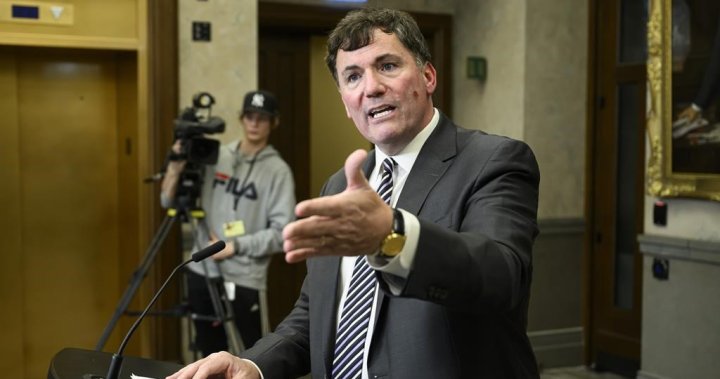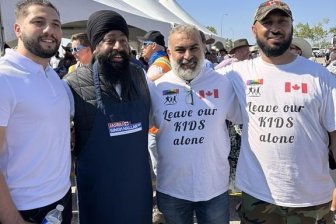The minister tasked with outlining the next steps in Canada’s foreign electoral interference probe says they’ve made “significant progress” but aren’t ready to make a decision on whether or not to hold a public inquiry quite yet.
“We are not there yet. I had a rather lengthy meeting with senior officials from the Privy Council Office this morning. I’m meeting again in the next couple of days with the opposition House leaders,” Intergovernmental Affairs Minister Dominic LeBlanc said at a press conference in Dieppe, N.B.
“So, we’re continuing to make progress, but we’re not there yet. And I know everybody’s very impatient. And as soon as we have some news to announce, we’ll be happy to do so.”
A spokesperson with the Conservative Party says Opposition House leader Andrew Scheer will be in attendance at the meeting with LeBlanc.
After their last meeting, the Tories said the parties reached an agreement on the terms of reference for a public inquiry, and all parties shared their suggested names for a potential commissioner.

Global News has reached out to the NDP and Bloc Québécois to confirm their invitation to the upcoming House leader meeting. House leaders co-ordinate the daily business of the House of Commons on behalf of the parties they represent.
When asked what specific issues need to be resolved before a decision can be made, LeBlanc remained tight-lipped.
“You’ll understand that if we’re having constructive, private conversations, they’re not helped by public conjecture around the work we’re doing. I can tell you that we recognize the importance of reassuring Canadians about the resiliency of our democracy,” he said.
For months, opposition parties have been pushing for a public inquiry into electoral interference amid allegations that the Chinese government attempted to interfere in the last two federal elections.
Former governor general David Johnston was initially appointed by the federal government to act as “special rapporteur,” tasked with producing a report to say whether or not he thought an inquiry was warranted.

In May, Johnston tabled his report after reviewing classified materials and interviewing key witnesses. He ultimately decided an inquiry was not warranted, citing the classified information he reviewed that he said could not be shared.
Instead, Johnston suggested a series of public hearings should be held to both educate the public and consider reforms to safeguard elections.
Weeks later, Johnston resigned as special rapporteur, saying the process had become hyper-partisan. The opposition parties had alleged a conflict of interest and appearance of bias due to Johnston’s links to the Trudeau family and the Trudeau Foundation.
LeBlanc was then tasked by Prime Minister Justin Trudeau to work with the opposition parties on determining the next steps of the interference probe.
Both Trudeau and LeBlanc say they never ruled out holding a public inquiry, but have suggested all parties need to agree about the terms of reference and who should lead such a probe before one can be called.
© 2023 Global News, a division of Corus Entertainment Inc.




